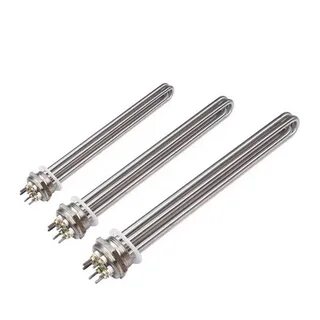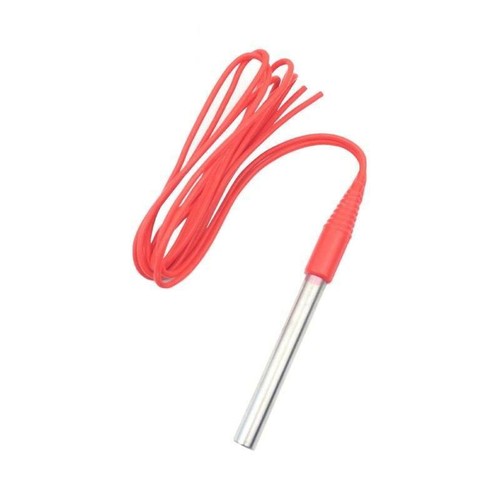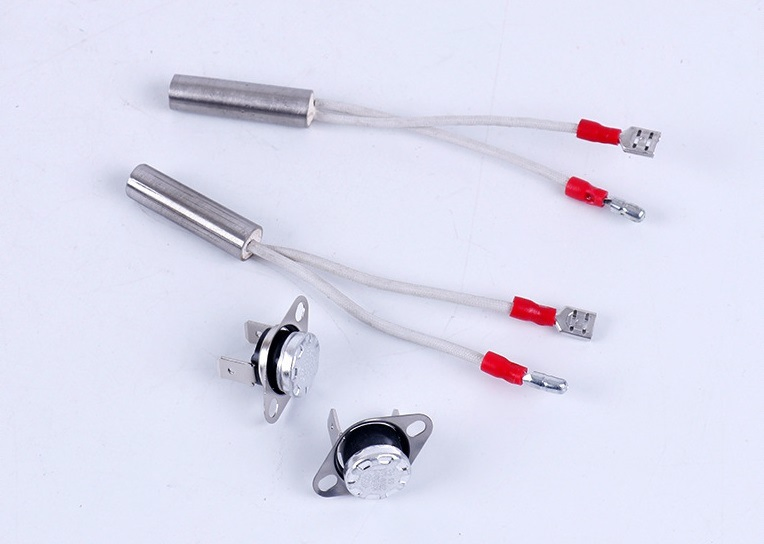An immersion tubular heater is an efficient, compact, and widely used solution for heating liquids, gases, and other substances in various industries. Understanding its principle is crucial for selecting and maintaining heating solutions in industrial and residential settings. Unlike traditional heating methods, immersion tubular heaters provide direct and targeted heating, making them energy-efficient and reliable.
Let’s break down the core principles and key applications to help you maximize their potential.
The Core Principle of an Immersion Tubular Heater
At its core, the immersion tubular heater operates on the principle of electrical resistance. Here’s how it works:
- Electrical energy is converted into heat. When electric current flows through a resistive heating element (often made of alloys like nichrome), it generates heat.
- Direct immersion enhances heat transfer. The tubular heater is submerged in the medium it’s designed to heat (such as water, oil, or chemicals). This eliminates heat loss commonly associated with indirect methods.
- Uniform heating is achieved. The tubular design ensures even distribution of heat across the medium, preventing hot spots or uneven temperatures.
Key Components of an Immersion Tubular Heater
- Sheath Material: Protects the heating element from corrosion. Common options include stainless steel, titanium, or Incoloy, chosen based on the medium being heated.
- Heating Element: The core component, responsible for generating heat through resistance.
- Insulation: Separates the element from the sheath to ensure safety and efficiency.
- Mounting Options: These include flanged, threaded, or over-the-side designs, catering to diverse applications.
Applications of Immersion Tubular Heater
These heaters play a vital role across industries due to their versatility and efficiency. Here are some common uses:
- Industrial Processing: Used in chemical tanks, oil refineries, and water treatment plants for precise temperature control.
- HVAC Systems: Provides supplemental heat for air-handling units.
- Food and Beverage Industry: Ensures optimal temperatures in cooking or pasteurization processes.
- Renewable Energy: Supports thermal storage in solar heating systems.
Why They Are Preferred:
- Energy Efficiency: Direct heating minimizes waste.
- Compact Design: Saves space without compromising performance.
- Customizable Options: Tailored to specific industrial or domestic needs.
Advantages of Immersion Tubular Heater Over Alternatives
When compared to other heating solutions, immersion tubular heaters offer distinct advantages:
- Faster Heating: Direct immersion ensures rapid heat transfer.
- Durability: High-grade materials extend lifespan, even in corrosive environments.
- Cost-Effectiveness: Reduced energy consumption lowers operational costs.
- Safety Features: Equipped with thermal cutoffs and protective coatings to prevent overheating.
Maintenance Tips for Long-Term Performance
To ensure the longevity and efficiency of your immersion tubular heater, follow these actionable tips:
- Inspect Regularly: Check for signs of corrosion, scaling, or physical damage on the sheath.
- Clean Periodically: Prevent scale buildup, especially in hard water applications, to maintain efficiency.
- Monitor Electrical Connections: Ensure tight and secure connections to avoid power issues.
- Replace Damaged Components Promptly: A compromised element or sheath can lead to safety hazards.
- Match Materials to the Medium: Use corrosion-resistant materials for chemicals or saltwater applications.
Innovations in Immersion Tubular Heaters
The heating industry is constantly evolving. Some recent advancements in immersion tubular heaters include:
- Smart Temperature Control: Integration with IoT for real-time monitoring and remote adjustments.
- Energy Optimization: Use of advanced insulation materials to improve energy retention.
- Custom Designs: Manufacturers now offer more tailored configurations for niche applications.
Final Words
The immersion tubular heater remains a cornerstone in efficient and reliable heating. By leveraging its principle of direct heat transfer, industries can achieve precise temperature control while saving energy. Regular maintenance and understanding its core functionality can ensure optimal performance for years.
Whether you’re looking to heat water in a residential tank or manage a chemical process in an industrial setup, understanding this heater’s principles equips you to make informed decisions.














